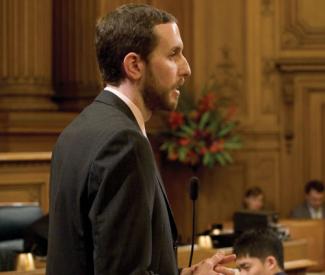Political interest groups of all stripes generally hold the “will of the voters” to be sacrosanct and not something that should be arbitrarily trifled with by mere politicians. Right or wrong, it’s commonly accepted that if voters do something, only they should be able to undo or modify it. And certainly, if that standard is going to be changed, someone ought to put forward a pretty damn good reason for doing so.
Which is why we and other City Hall watchers have been perplexed over these last few months as Sup. Scott Wiener has pushed a ballot measure that would give the Board of Supervisors the power to alter voter-approved measures after three years, which will go before the board tomorrow (Tues/19) for possible placement on the November ballot.
Aside for a general desire to clean up unspecified minor clutter from the city codes, Wiener hasn’t really offered much of a rationale for this big change, or said what laws he has in his sights. That’s caused groups on both the left and the right to view it with great suspicion, for good reason. It’s been amended many times to address the understandable panic about the bedrock principles that it could alter, changing its effective date and going back-and-forth on whether it should apply to voter-initiated measures, finally settling on restricting it to just measures introduced by the board or mayor and taking effect after January 2012.
But as indicated by comments Sup. Sean Elsbernd made at the Rules Committee hearing and with an editorial supporting Wiener’s measure in Friday’s San Francisco Chronicle (which is often a sign of funny business being cooked up downtown), at least some of the rationale is to overturn a trio of progressive fall ballot measures that they don’t like, even before voters have said whether they want them. And that’s not a good sign, no matter how you feel about those measures.
As much as we would all love to empower legislators to go after voter-approved measures that we don’t like – for example, our state would be in much better fiscal shape if the Democrat-controlled Legislature would tweak Prop. 13 – that’s just not how things are done in a democracy. And if undoing every significant progressive reform that voters have approved over the years was suddenly a possibility on any given Tuesday, Wiener will have seriously raised the stakes at City Hall.
With campaign finance laws under attack by conservative judges and rich corporations and individuals wielding ever more power over our elections, the prospect that decades worth of reforms would suddenly be on the table in each district supervisorial race is truly scary. And we’re going to open up this can of worms based simply on the small bureaucratic nips and tucks that Wiener is citing? That just doesn’t make sense. Yup, there’s definitely some funny business going on here.

